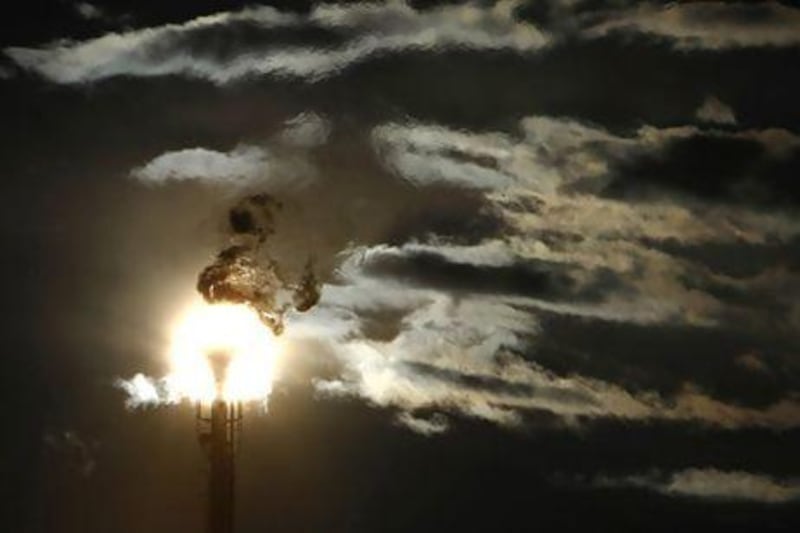Abu Dhabi National Oil Company (Adnoc) has completed a US$11 billion project to process and bring to land offshore gas to meet burgeoning domestic demand.
The Integrated Gas Development (IDG) will add 800 million standard cubic feet of gas per day to domestic supply and marks a shift towards offshore gas to meet local demand that has been increasing at a rate of 15 per cent a year.
"We should be receiving the offshore gas from Umm Shaif and Das Island in the next few days. Production will start ramping up," said Mohammed Sahoo Al Suwaidi, the director general at Adnoc's gas directorate.
The offshore field and the facilities on the artificial island are part of the scope of the IDG. The project also includes onshore processing facilities at Ruwais and an extensive underwater pipeline system. Most of the gas will come from the Umm Shaif field.
Adnoc's gas directorate was created last October to coordinate the efforts to maximise production of a hydrocarbon that is steadily gaining in importance as demand continues to grow.
"Gas processing capability must continue to be developed in order to meet a domestic gas demand which is growing at almost 15 per cent annually," Mr Suwaidi said at an EIC Connect conference.
Spiralling consumption of electricity and water, generated in power and desalination plants fuelled by gas, exceeds existing domestic supplies. Gas is crucial to Abu Dhabi's industrialisation, which is pursued to diversify the economy and create jobs. To cater to the needs of energy-intensive industries such as aluminum or steel production, the emirate needs to tap additional sources of gas.
Abu Dhabi is resorting to imported liquefied natural gas (LNG) to fend off an immediate shortage, but wants to draw on more affordable domestic reserves in the long term.
To this end, the gas directorate has developed a strategic masterplan to secure sufficient gas, which it has submitted to the Supreme Petroleum Council, the emirate's decision-making body on energy affairs.
"It was presented to the authorities, and we are progressing with that. We've got the green light in developing the Adnoc reservoir," said Mr Suwaidi.
Already, $25bn worth of gas projects are either under way or are being tendered, he added.
The new strategy will pivot away from onshore gas reserves to developing offshore resources.
"Adnoc will soon be launching many more initiatives to develop undeveloped gas reserves, but more importantly focusing on the offshore gas resources," said Mr Suwaidi, who is also the chief executive of Gasco, the Adnoc subsidiary handling onshore gas.
While offshore oil accounts for about 40 per cent of Abu Dhabi's total output, only 25 per cent of gas is pumped offshore. The offshore drive will focus on conventional gas, most of which is found in oil reservoirs and produced as associated gas.
Associated gas from the onshore fields is already being captured and processed effectively, and the growth of production on land will focus on unconventional sources.
Adnoc and the American company Occidental will complete the $10bn Shah sour gas project next year, and Shell was awarded a similar project at Bab last month. Stripping sour gas of its sulphur content is complex and expensive, but Adnoc is keen to pursue further unconventional projects.
"Adnoc is observing, and actively discussing, the vast potential for Abu Dhabi unconventional gas resources," said Mr Suwaidi.
Exploring the emirate's potential for shale gas - gas trapped in deep-lying rock formations - could also be part of this drive.





